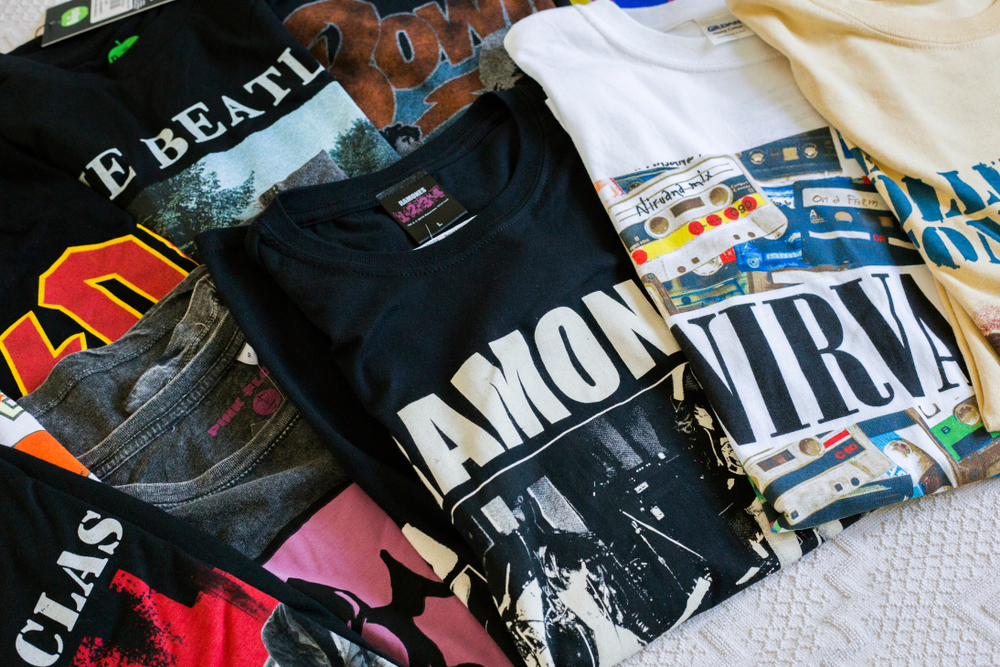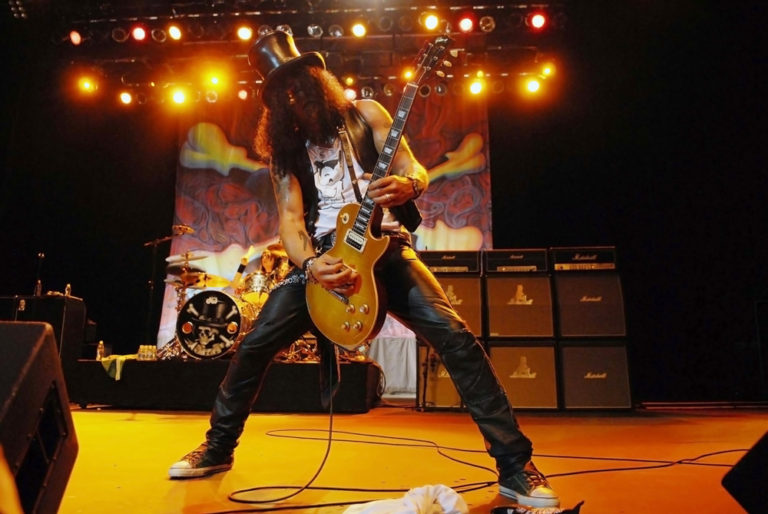What Other Music Do Metalheads Like?
Obviously, there cannot be one set standard for a situation with as many variables at play. While some might believe that metalheads belong to a very distinct personality type, the truth is that each being has a unique genetic makeup that makes them slightly different. And, by extension, their taste in music.
Metal fans also enjoy listening to grunge, post-grunge, classic rock, alternative rock, progressive rock, hardcore punk, punk rock, goth, jazz, hip-hop, and pop music. Some metal fans listen to metal exclusively, while other metalheads’ tastes are eclectic and enjoy music across most genres.
With more than 1200 genres and subgenres of music out there, the possibilities are virtually infinite. However, on the quest for the most probable scenario, it would be a safe bet to start with the genre from which heavy metal was born; Rock’ n’ Roll, Baby! Let’s take a look at the top rock subgenres metal fans listen to.
Grunge
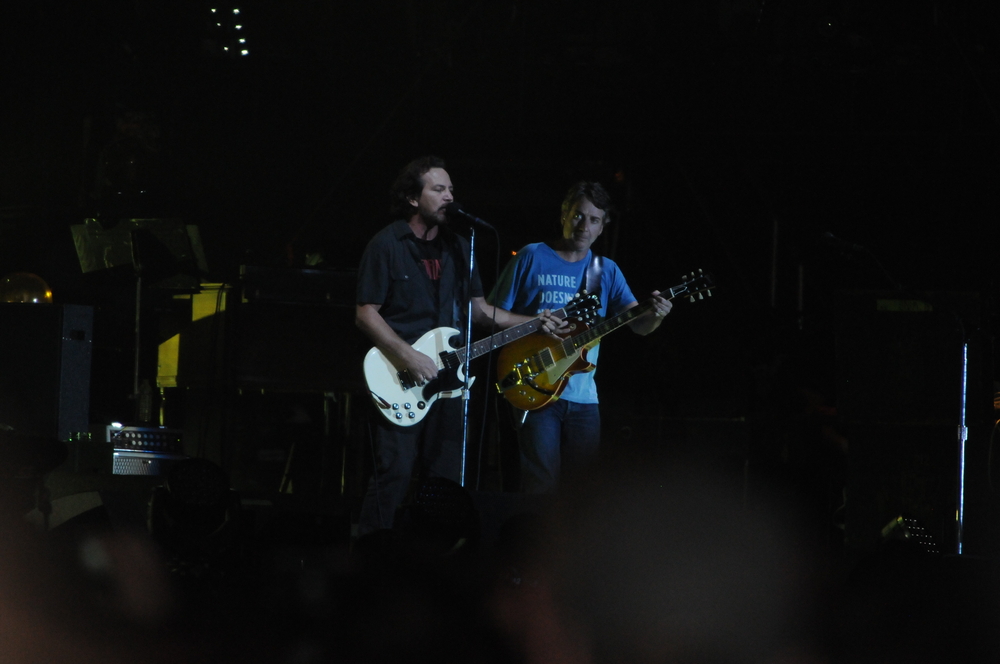
In the 1980s Seattle, the so-called grunge scene peaked its head out and greeted the world. The “murky guitar” bands became a trendy subgenre of rock music by the late 1980s and early 1990s, influenced by heavy metal and punk rock.
Keeping a little of both genres, like the distorted guitars (heavy metal) and angst poetry in the form of lyrics (punk), grunge plowed its way through the world until the middle 90s. On 5 April 1994, fans mourned the death of legend Kurt Cobain from Nirvana, and eight years later, on the same date, Layne Staley from Alice in Chains.
For the best grunge experience, look for music from Nirvana, Alice in Chains, Hole, Stone Temple Pilots, Smashing Pumpkins, Everclear, Pearl Jam, Soundgarden, Melvins, and L7. Some notable songs in the genre are:
- “Smells Like Teen Spirit” – Nirvana
- “Alive” – Pearl Jam
- “Would?” – Alice in Chains
- “Superunknown” – Soundgarden
- “Today” – Smashing Pumpkins
Classic Rock
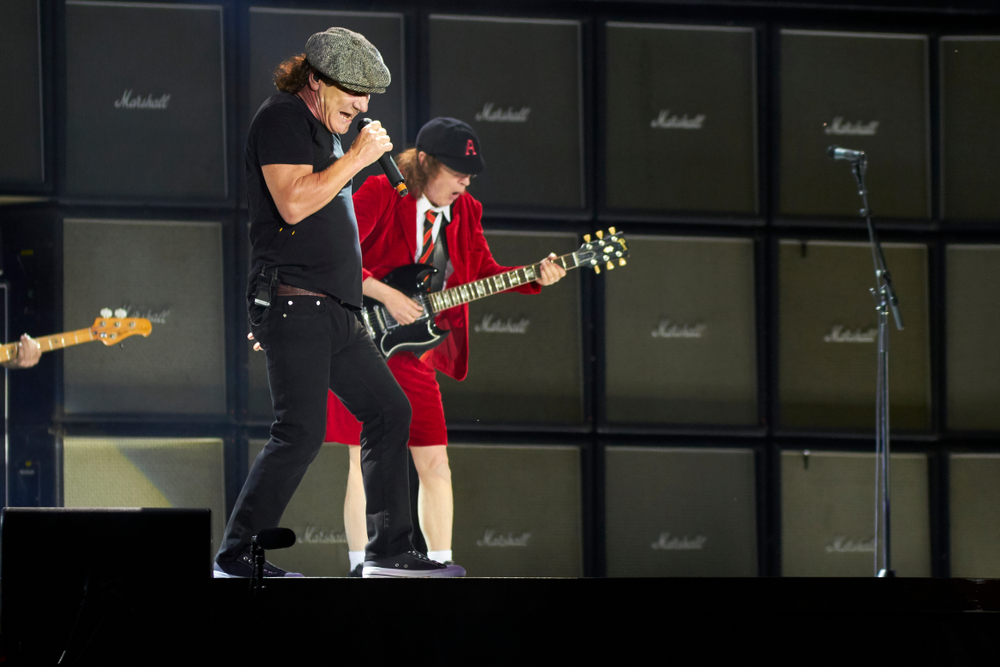
It might not be a subgenre from rock in the technical sense and is probably considered more along the lines of a radio format that ran in the 1980s. Nevertheless, classic rock was is just that feel-good, thrilling, and soul-giving music of the 60s and 70s.
Classic rock has been the most significant influence on some of the greatest artists and heavy metal bands to date. I would not go as far as to say that classic rock made this all happen because we all know that it traces a little further back with legends like Chuck Berry and Buddy Holly.
There is a very good chance that you’ll recognize most of the classic Rock ‘n’ Rollers. We’re talking the Rolling Stones, Queen, Chuck Berry, Jimi Hendrix, The Doors, AC/DC, Def Leppard, Aerosmith, Credence Clearwater Revival, Yes, and Kiss – to name only a few. Some notable songs in the genre are:
- “Whole Lotta Love” – Led Zeppelin
- “Purple Haze” – Jimi Hendrix
- “(I Can’t Get No) Satisfaction” – The Rolling Stones
- “Johnny B. Goode” – Chuck Berry
- “Bohemian Rhapsody” – Queen
Alternative Rock

This subgenre of rock emerged somewhere between the 1980s and 1990s from bands who felt that they didn’t quite fit into the mainstream rock/punk scene of the time. Alternative rock can also be categorized with college rock, indie rock, post-punk, and post-grunge.
Suppose the word “alternative” wasn’t a clear enough indicator that the bands’ style, stance, and influences differed from what was popular during the era. In that case, we can just say that they carried on with DYI punk spirit but took a few side roads along the way.
Some great alternative rock bands include Beck, Red Hot Chili Peppers, White Stripes, Weezer, R.E.M., Foo Fighters, The Cure, Muse, Depeche Mode, The Smashing Pumpkins, Oasis, Pixies, and The Smiths. Some notable songs in the genre are:
- “Losing My Religion” – R.E.M
- “Creep” – Radiohead
- “Personal Jesus” – Depeche Mode
- “Scar Tissue” – Red Hot Chili Peppers
- “Seven Nation Army” – White Stripes
Progressive Rock
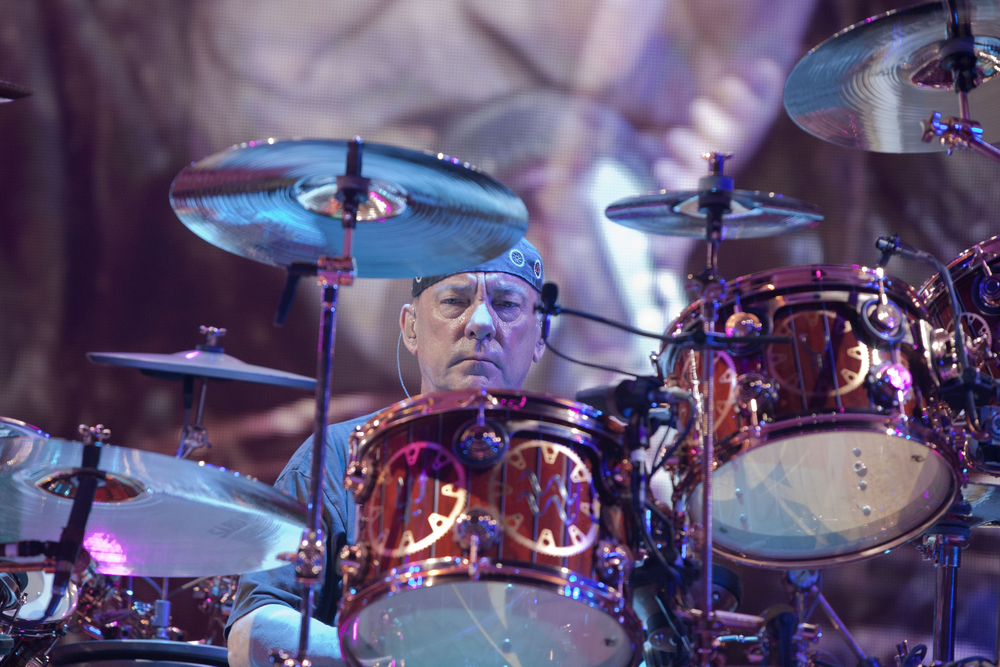
The genre-defying prog-rock style came about around the 1960s; it can also be referred to as symphonic rock, art rock, or classical rock (no, not the same as the 1980s radio format classic rock). It would not be easy to pinpoint the exact mold from which the genre emerged; perhaps there was no mold to begin with.
Some common characteristics found throughout the progressive rock scene are in the form of poetic (or artful) lyrics combined with striking compositions (this is where the “classical” theme comes in) and the use of instrumentational and technological advances to create unique sounds.
If prog rock sounds like something you might like, listen to Rush, King Crimson, Dream Theater, Soft Machine, Porcupine Tree, Kansas, Pink Floyd, Gong, Supertramp, Genesis, Spock’s Beard, Roger Waters, and The Nice. Some notable songs in the genre are:
- “Echoes” – Pink Floyd
- “Starless” – King Crimson
- “Supper’s Ready” – Genesis
- “Moving Pictures” – Rush
- “You” – Gong
Punk Rock/Punk-Pop
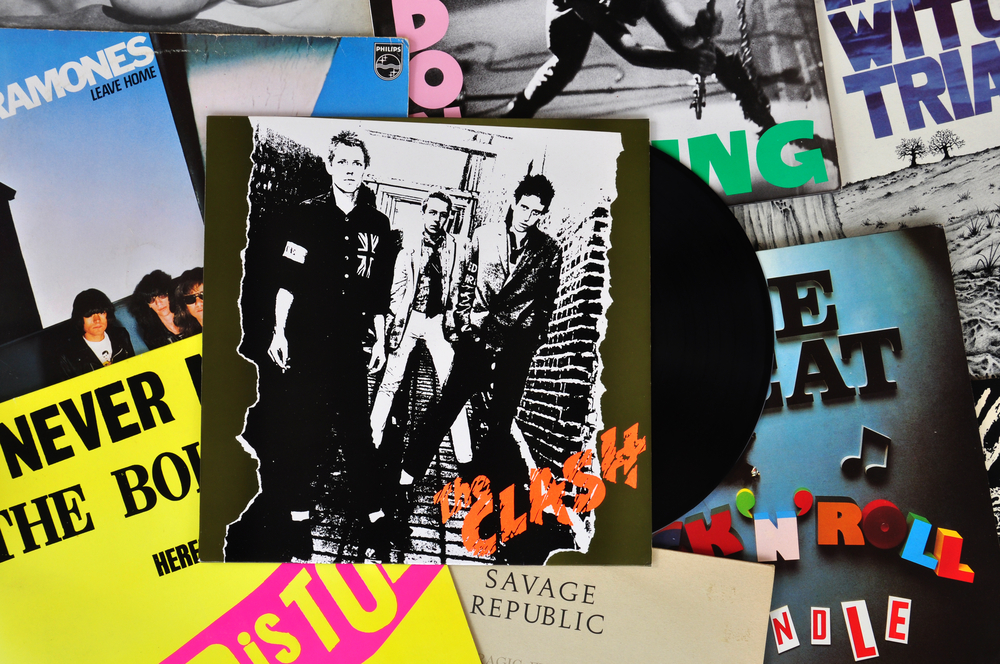
The punk theme from the 1970s seemed to have revolved around the notion of “screw the system” and all that goes with it and has a lot to say about politics. The bands are notorious for the “do it yourself” theme by skipping major record labels and playing at smaller venues.
Some popular bands and artists are the Dead Kennedys, The Clash, Ramones, Misfits, Black Flag, The Stooges, Bad Religion, Bad Brains, Rancid, and NOFX.
Metal fans might also enjoy music from bands considered more punk-pop like, Green Day, Rise Against, blink-182, Sum 41, Paramore, My Chemical Romance, New Found Glory, Jimmy Eat World, Yellowcard, All Time Low, Taking Back Sunday, and The Offspring. Some notable songs in the genre are:
- “London Calling” – The Clash
- “Holiday in Cambodia” – Dead Kennedys
- “Blitzkrieg Bop” – Ramones
- “American Idiot” – Green Day
- “Survive” – Rise Against
Industrial Rock

Uniformly, it appears that industrial rock was set into motion by the 1970s by Throbbing Gristle. Using components from progressive rock and aggressive electronic sounds to create something the world has heard little of.
“As industrial evolved, its avant-garde influences became far less important than its pounding, relentless, jackhammer beats, which helped transform it into a darker alternative to the hedonism of mainstream dance music.”
Allmusic
Check out bands or artists like Nine Inch Nails, Ministry, Skinny Puppy, KMFDM, Rammstein, Swans, Die Krupps, Rob Zombie, White Zombie, and Gravity Kills. Some notable songs in the genre are:
- “Closer” – Nine Inch Nails
- “Feuer Frei” – Rammstein
- “Guilty” – Gravity Kills
- “More Human Than Human” – White Zombie
- “N.W.O.” – Ministry
Funk Rock
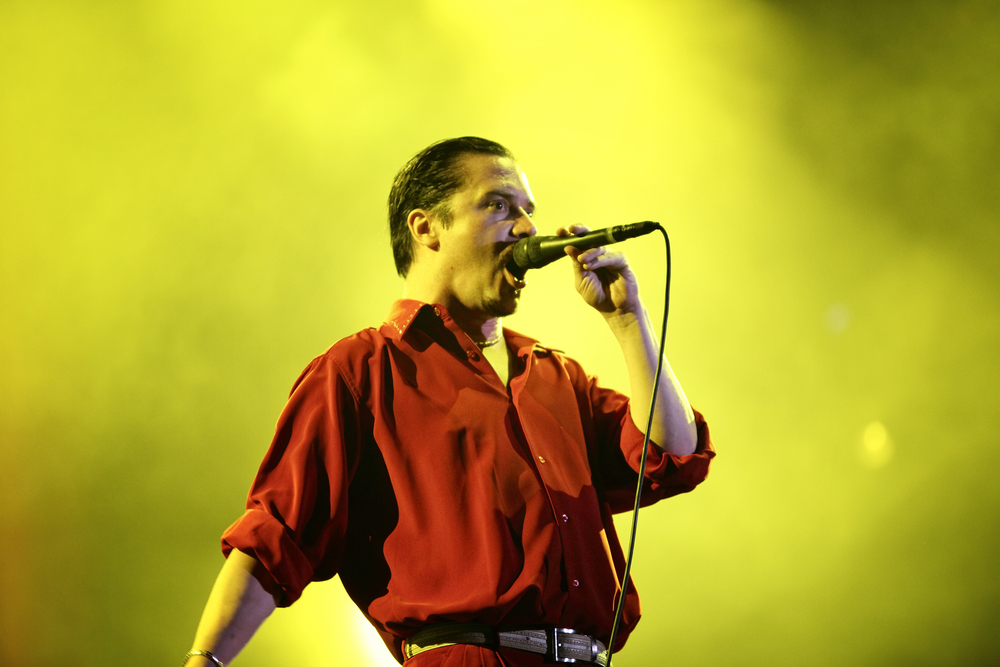
Folks, it does what it says on the box; the genre combines elements of funk (a subgenre of R&B) and rock ‘n’ roll. While it might sound like a formula for disaster, the two diverse genres subscribe to the “opposites attract” impression.
To get your groove on, look for bands or artists like Living Colour, Prince, Fishbone, Red Hot Chili Peppers, Faith No More, Primus, Funkadelic, Mother’s Finest, George Clinton, Lenny Kravitz, Wild Cherry, Bootsy Collins, Dan Reed Network, and Grand Funk Railroad. Some notable songs in the genre are:
- “Let’s Go Crazy” – Prince
- “Maggot Brain” – Funkadelic
- “Always On The Run” – Lenny Kravitz
- “Give It Away” – Red Hot Chili Peppers
- “We Care A Lot” – Faith No More
Shock Rock

Metal fans go crazy for outrageous live shows; shock rock is centered around the weird, wacky, and wonderful. To be honest, nothing much could shock a metalhead too much at this point, but the theatrical performances of these bands are simply insane and very entertaining.
Check out some live performances from Gwar, Alice Cooper, Marilyn Manson, GG Allin, Kiss, W.A.S.P., Twisted Sister, Plasmatics, Dwarves, and Murderdolls. Take a look at this iconic shock rock montage from Loud Wire.
Conclusion
Music is the collective language that speaks to the soul; it never translates quite the same from one person to the next. And the only thing we know is that when it speaks, we listen. We do not ask any questions. We just feel.
Sources
- https://www.theguardian.com/music/2014/sep/04/-sp-from-charred-death-to-deep-filthstep-the-1264-genres-that-make-modern-music
- https://www.mmo-champion.com/threads/903854-Music-Metalheads-what-else-do-you-listen-too
- https://forums.escapistmagazine.com/threads/poll-do-metal-fans-like-any-other-genres.75672/
- https://www.reddit.com/r/Metal/comments/1ho07w/i_know_were_all_metalheads_here_but_i_know_many/
- https://www.quora.com/If-people-think-of-you-as-a-metalhead-what-other-genres-do-you-like
- https://loudwire.com/non-heavy-acts-metalheads-dig/
- https://loudwire.com/heavy-metal-music-studies/
- https://www.ranker.com/list/popular-rock-music-genres/ranker-music

